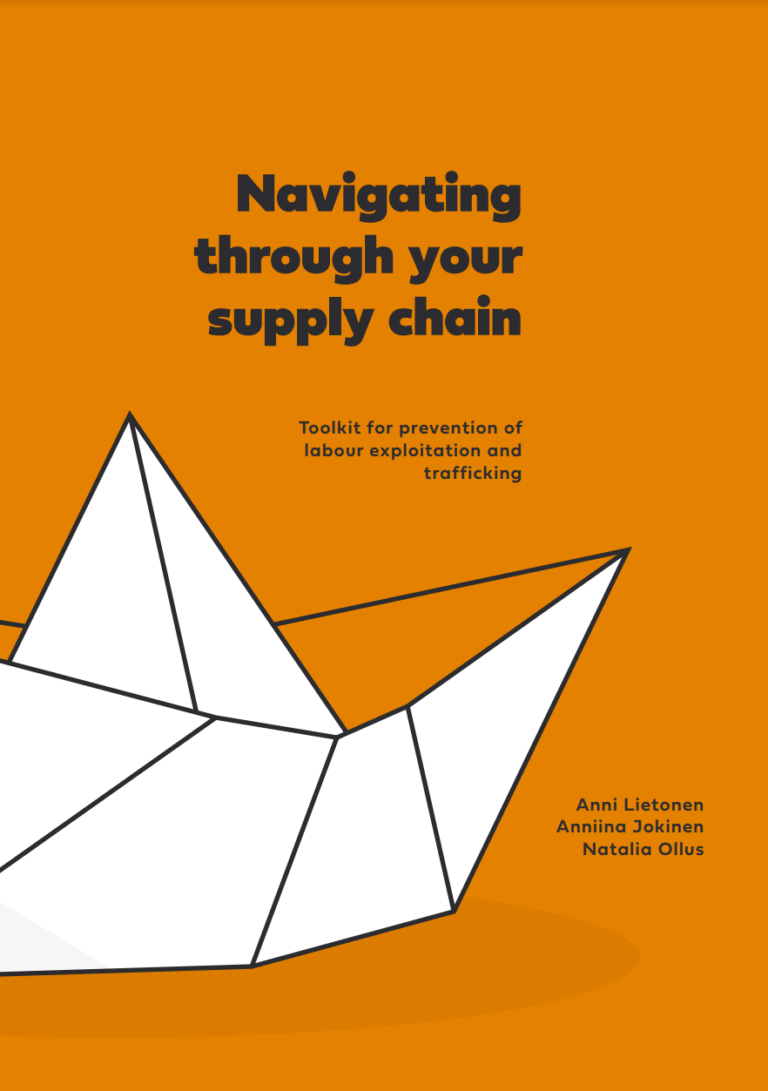This risk management toolkit has been developed in the context of the EU-funded FLOW-project.1 Its purpose is to give companies a brief overview of what labour exploitation and trafficking are, as well as to demonstrate the risks for businesses, and how involvement in such scenarios can be effectively avoided. These tools focus on the practical implementation of due diligence procedures, such as gathering information through worker-led monitoring and grievance mechanisms. The aim is to provide “hands-on” measures for businesses that can be used to navigate and control complex supply chain networks, especially in a local, national and intra-European context with the focus on preventing exploitation and trafficking. The measures include conducting a risk assessment, drafting an anti-trafficking strategy, screening contractual partners, incorporating specific contractual clauses and organizing workplace assessments/inspections concerning the activities of subcontractors or other contractual partners. To supplement this toolkit, a Normative Framework Guide (HEUNI Publication Series No. 94) has also been developed as part of the FLOW-project, which provides a summarized overview of existing legal frameworks outlining businesses’ responsibilities with regard to human rights, with a focus on labour exploitation and human trafficking.
This resource is available in Bulgarian, Estonian, Finnish and Latvian





